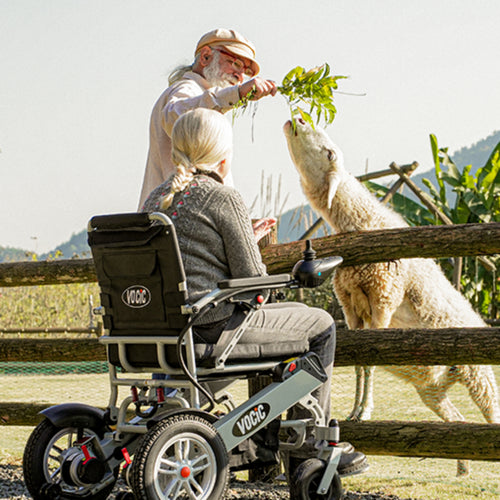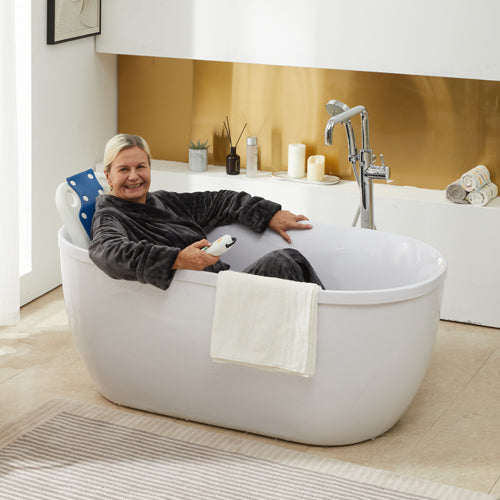“Everyone in Midlife Gets Arthritis”
Joann Meredith has been grappling with the relentless challenges of arthritis. In the years since her diagnosis, she has experienced pronounced stiffness in one or more joints. This stiffness intensifies in the early mornings or after holding the same position for extended periods, making even the simplest daily tasks arduous. For instance, upon waking, her joints feel so rigid that getting dressed or combing her hair takes considerably longer. Though the pain isn’t overwhelming at this stage, the inconvenience steadily begins to disrupt her daily life.
Since her diagnosis, Joann has been on a regimen of high-dose medication. Physically, she has watched her condition worsen, as her body increasingly struggles under the weight of the disease.
"I can see the vicious cycle of inactivity and muscle loss spiraling upward. I've tried physical therapy and exercises, but they haven’t halted the wear and tear. I’m now at a stage where my body just can't handle much of anything," Joann said. "Running even one errand is enough to exhaust me for the entire day. Just yesterday, I stepped out briefly to pick up some medication from the pharmacy, and that was all I could manage for the day."
“As time went on, the pain and stiffness in my joints only worsened, and my range of motion became noticeably limited,” Joann continued. “Sometimes, even the simplest movements, like clenching my fist or bending my knee, feel nearly impossible. My knees and ankles have weakened so much that walking or climbing stairs is a real challenge. I have to rely on others, which makes me feel uncomfortable and, frankly, a bit embarrassed.”
"I don’t want to become a burden to anyone, so I’ve started avoiding going out," she admitted, "but that isolation has brought its own set of issues—my vitality, my mental health. My doctor urges me to get out and stay active because sitting at home for too long isn’t good for my condition. It raises my risk of obesity, high cholesterol, and potentially heart disease. The likelihood of depression also rises, and there’s a real chance it could lead to my symptoms worsening,” Joann added somberly.
To make outings easier, Joann and her family decided to purchase a walker based on her doctor’s recommendation.
“When it comes to mobility aids, after-sales service is a crucial factor. I read reviews mentioning how attentive VOCIC’s support team is in answering questions, and they have good ratings. That matters a lot to me,” Joann shared.
Joann is especially pleased with the VOCIC Z21 rollator walker. “Comfortable cushion, adjustable height, adjustable seat—I really like the storage basket,” she said. The storage feature allows her to bring along her medications and essentials on outings, providing a greater sense of independence.

“Customer service was very helpful, very courteous. I actually talked to a live person! I was genuinely surprised not to get an answering machine,” Joann added with satisfaction. VOCIC’s support team went above and beyond to answer her questions, leaving Joann feeling confident and supported in her purchase.
"Use my walker to get from one room to the next—this walker is a life-changer." In the past, simple tasks were immense challenges for Joann. Every step came with joint stiffness and sharp pains that made her long for the freedom to walk independently. But everything changed when she started using the Z21 rollator walker. Now, she can confidently move from her bedroom to the living room, and even step out into the garden to enjoy her flowers.
"I use my walker for everything I do—shopping, laundry; it’s a big impact in my daily life," Joann shared. She now relies on her Z21 to tackle every small task in her day, from shopping to household chores and laundry. These everyday activities were once overwhelming and often required someone else’s help. But with the Z21, Joann has regained her independence and confidence. "The Z21 isn’t just my ‘third leg’; it’s an essential partner in my life," she added.
"This is a long fight, and if you’re going through the same challenges, stay proactive. If you sense something isn’t right, don’t let others tell you otherwise. Seek help from doctors, family, and reach out to others in your community who may be in similar situations. You can find supportive friends nearby with whom you can discuss openly and share strengths. And when you find companies with reliable support, it really makes a difference. Good after-sales service doesn’t just reduce the physical burden, but also provides expert guidance in using mobility aids," Joann wrote in the closing of her message.







